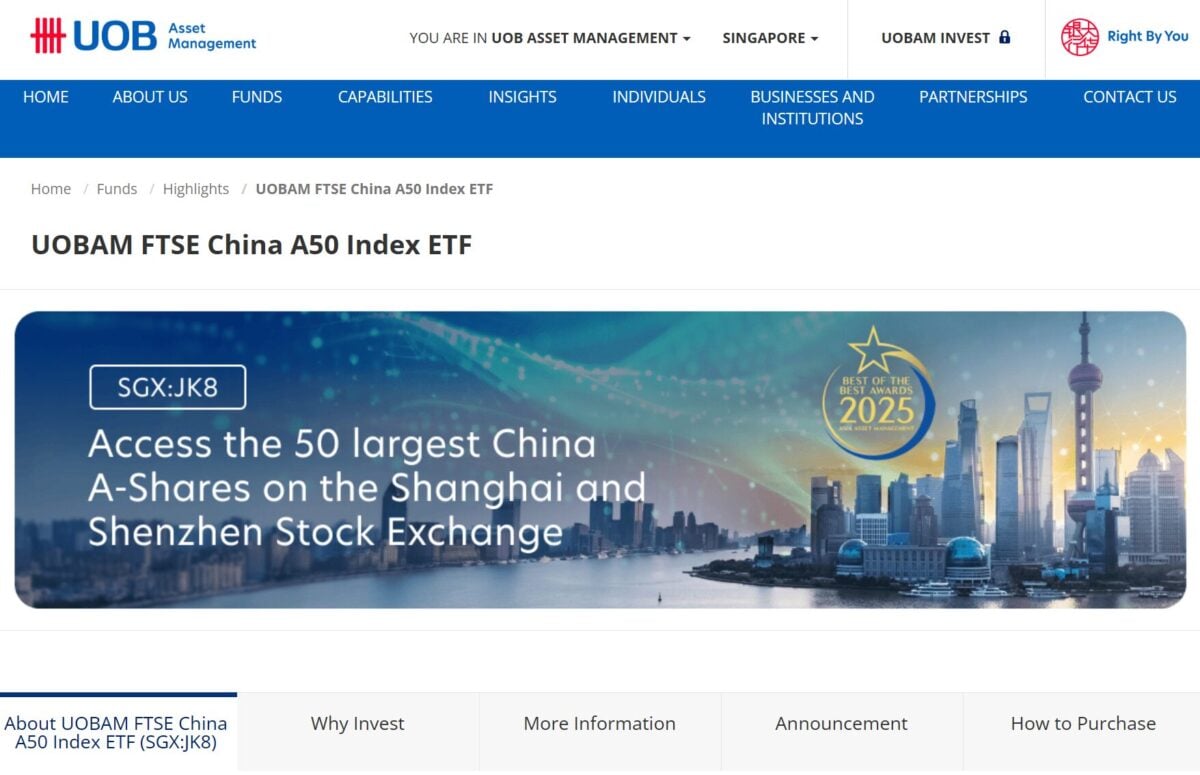
The Singapore FinTech Festival (SFF) has returned for the ninth year from 6 to 8 November 2024. Organised by the Monetary Authority of Singapore (MAS), Global Finance & Technology Network (GFTN) and Constellar, the festival is hosting 600 exhibitors and 900 speakers from more than 100 countries and regions.
This year’s global event will be focusing on leveraging Artificial Intelligence (AI) and quantum technology in advancing the financial sector.
Aside from creating a platform for policymakers and industry leaders to collaborate, the festival offers a glimpse into the growing fintech trends and potential challenges that can impact the industry and consumers.
As a supporting media partner of the Singapore Fintech Festival, DollarsandSense attended the event and here’s 4 things we learned.
#1 Domestic Focus Not Sufficient To Thrive In Digital Economy
Singapore has always taken pride in being a global finance hub where industry leaders meet and collaborate.
To further accelerate the fintech space in the country, there needs to be a fostering of greater synergies and networks with the global FinTech community. To achieve that, Monetary Authority Singapore has announced the establishment of the Global Finance & Technology Network (GFTN) that will be lending its expertise in various efforts overseas such as supporting client banks in Georgia. GFTN will be making an impact on Singapore’s fintech industry through four pillars which include organising global forums, advising on innovative activities, provide platforms for small businesses and fund startups with high potential.
GFTN also prioritises creating a more inclusive financial system and sustainable planet. Ravi Menon, who was recently appointed Chairman of the Board of Directors for GFTN, explained during the Singapore Fintech Festival that it is working on connecting small enterprises to a range of sustainable solutions through Gprnt (pronounced as greenprint).
#2 More People Finding Value In AI
In a digital focused era, it’s important to keep up with the latest technologies regardless of which industry you’re in.
Although AI has existed for a while, there has been an uptrend in adoption of AI technology recently, as observed by BlackRock’s Chief Innovation Officer Kfir Godrich, who spoke at the Singapore Fintech Festival.
Also speaking at the event is Shelley McKinley who is Chief Legal Officer at GitHub, which offers a platform for developers to access tools to build software. Users can try the GitHub Copilot for free for 30 days to write better code using natural language, which can come in handy for those who are not formally trained in coding. McKinley added that more than a million people are using GitHub including teachers, accessing the benefits of technology and GitHub takes out the toil of coding.
Another current hot topic of the fintech industry is the transformative impact of generative AI (or Gen AI) tools that enable creation of new content including ChatGPT and deepfakes.
An important part of creating a thriving digital economy is making sure that everyone is able to access generative AI tools. It’s also crucial for the next generation to understand Generative AI not only from a consumer’s perspective but from an enterprise point of view.
During the Singapore FinTech Festival, founder of global investment firm Vista Equity Partners, Robert F Smith discussed on different ways its organisation is creating access to generative AI including increasing digitisation in universities and providing broadband access and infrastructures to enable communities to participate in digital economic activities.
Vista Equity Partners also hosts an annual hackathon, which invites undergraduate and graduate students joins Vista portfolio companies to build innovative enterprise software solutions, providing them with hands on experience and network opportunities.
Mindbody, a gym management software company took a generative AI solution developed for the hackathon to strengthen customer support services, which results in more than 90% resolution rate.
Other than that, the firm is also opening opportunities through internship programmes such as Intern XL, which will be happening in Singapore to create exposure for students in Southeast Asia.
#3 Cybersecurity Solutions Crucial As Digital Adoption Rises
We live in a world where consumerism or consumption of goods and services are at a rise. Even in Southeast Asia, countries such as Thailand are making significant steps in developing real time retail payment systems.
As the region scales up in adoption of digital technology, it may face the challenges of cybersecurity as trillion dollars were lost to scams conducted by organised crimes, according to Ari Sarker, President of Asia Pacific of Mastercard.
Additionally, AI technology is adopted heavily throughout the finance industry. Speaking at the Singapore Fintech Festival, Yang Peng who is Chief Executive Officer of Ant International, mentioned that Ant Group utlises AI technology across its businesses including guiding customers on their wealth and insurance decisions.
Another technology that is gaining traction is quantum computing which taps into quantum mechanics laws to solve highly complex problems. The wide adoption of quantum computing could also pose a threat to cybersecurity and companies who utilise quantum computing should enhance their risk management strategies.
#4 CBDC: The Policymakers’ View Of Cryptocurrency
As everyone focuses on convenience in the digital world, Central Bank Digital Currencies (CBDCs), digital money regulated by central banks could be a future form of payment.
“CBDCs have the potential to improve resiliency of payment and financial systems but there’s no one size fits all. It really depends on countries and their design choices whether to focus on retail or wholesale transactions,” said Bo Li, Deputy Managing Director of International Monetary Fund at the festival.
MAS has announced that it will focus on wholesale CBDC as retail payments in the country are already convenient and easy to use. MAS will pilot the “live” issuance of wholesale CBDCs for the first time, after previously simulating issuance within test environments. The first pilot will involve the use of “live” wholesale CBDC to settle retail payments between commercial banks.
The post 4 Trends We Learned At The Singapore FinTech Festival (SFF) 2024 appeared first on DollarsAndSense.sg.











